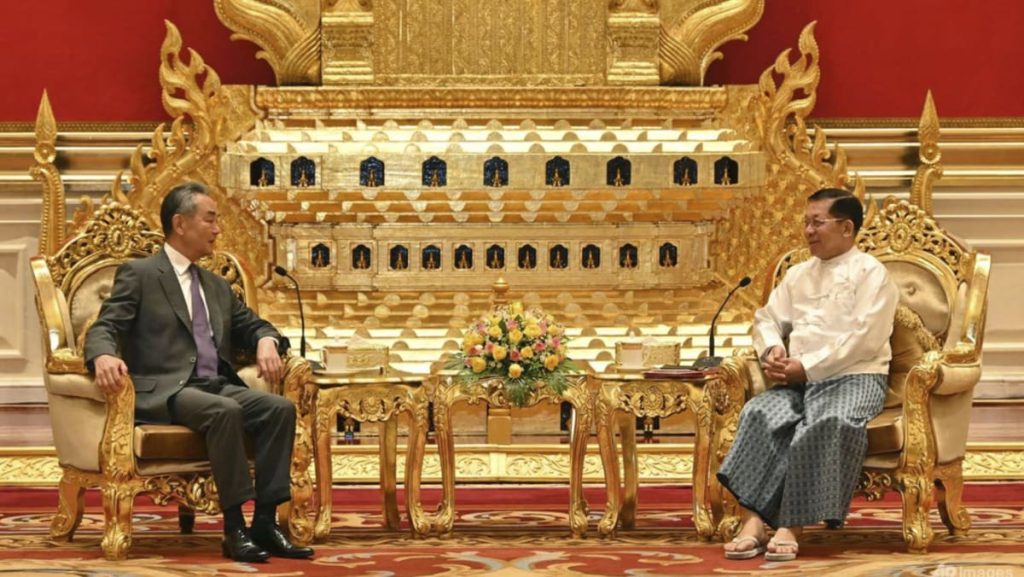Clashes between the military and ethnic armed groups in Shan state have continued, with the Ta’ang National Liberation Army (TNLA) engaged in battle with junta troops in the towns of Hsipaw and Naungcho. Major-General Tar Bhone Kyaw confirmed the fighting to AFP, and efforts to contact the Myanmar National Democratic Alliance Army (MNDAA) for comment are ongoing. The MDNAA previously captured the military’s northeastern command in Lashio, a significant development as it marked the first major victory by opponents of the junta since the 2021 coup. This capture led to public criticism of the top generals by their supporters, as they expressed concerns over the escalation of violence in the region.
The capture of the regional command in Lashio may have been a turning point in the conflict, as it highlighted the presence of armed opposition groups in Shan state that are actively resisting the military junta. This incident also raised concerns about the role of “foreign” sources in supporting these armed groups, with Min Aung Hlaing, the leader of the junta, suggesting that the alliance was receiving weapons, including drones and short-range missiles, from unknown sources. The involvement of external actors in providing arms to anti-junta forces could further escalate the conflict and complicate efforts to find a peaceful resolution.
The clashes in Shan state reflect the broader challenges facing Myanmar as it grapples with political instability and conflict between the military and ethnic armed groups. The ongoing violence in the region underscores the deep divisions within the country and the failure to address longstanding grievances and demands for greater autonomy and self-determination by ethnic minorities. The military’s brutal crackdown on pro-democracy protesters since the coup has further inflamed tensions and led to a resurgence of armed resistance by ethnic armed groups seeking to defend their communities and challenge the military’s grip on power.
The violence in Shan state is likely to have significant humanitarian consequences, with reports of civilian casualties and displacements as a result of the clashes between the military and ethnic armed groups. The continued fighting in the region has disrupted livelihoods, destroyed infrastructure, and created a climate of fear and uncertainty for local populations. Humanitarian organizations have raised concerns about the lack of access to basic services and the need for urgent humanitarian assistance to address the growing needs of conflict-affected communities.
The international community has been closely monitoring the situation in Shan state and expressing concern over the escalating violence and humanitarian crisis. Calls for an immediate ceasefire and a peaceful resolution to the conflict have been made, urging all parties to respect international humanitarian law and protect civilians from harm. The United Nations and other organizations have called for unfettered access for humanitarian organizations to deliver aid and assistance to affected populations, and for all parties to engage in dialogue to address the root causes of the conflict and build a sustainable peace in Myanmar.
In conclusion, the clashes between the military and ethnic armed groups in Shan state represent a troubling escalation of violence and instability in Myanmar, with potentially devastating consequences for civilian populations. The involvement of external actors in supporting armed opposition groups further complicates efforts to find a peaceful resolution to the conflict and highlights the urgent need for a concerted effort to address the root causes of the violence and build a sustainable peace in the country. The international community plays a crucial role in supporting efforts to end the violence, deliver humanitarian assistance, and promote dialogue and reconciliation among all parties involved in the conflict.


